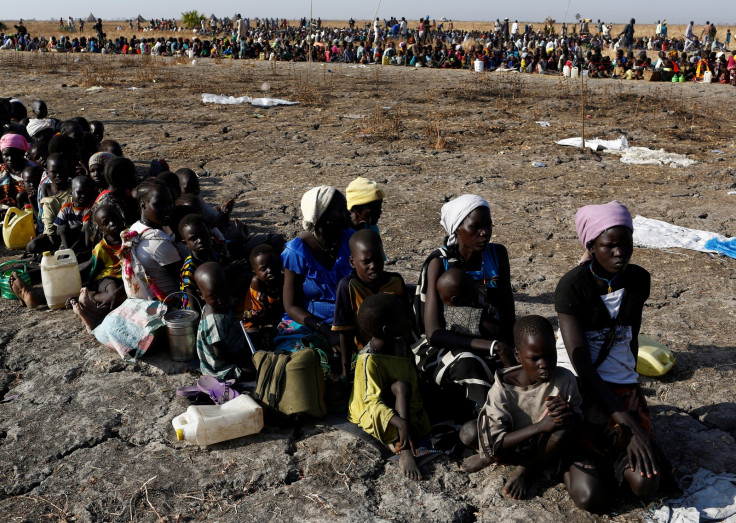Famine-stricken South Sudan denies use of oil revenues to buy weapons
The UN accuses leadership of failing its people amid conflict and famine, something Juba strongly denies.
The government in South Sudan has denied allegations it is using oil revenues to buy weapons at a time when the country has been hit by a man-made famine. Earlier this month, a UN report claimed it had evidence of "ongoing procurement of weapons" by the government, the South Sudanese army (SPLA) and other agencies.
But president's spokesperson Ateny Wek Ateny denied the allegations. Ateny also said the ongoing conflict is not to blame for the famine, which he said has been caused by poor rainfalls and insecurity, independent news site Radio Tamazuj reported.
Earlier this year, the UN and South Sudan – the world's newest nation – declared a man-made famine, which is threatening the lives of at least 100,000 people in Unity State. The ongoing conflict has been blamed for the famine, the first to be declared in any part of the world since 2011.
Last year, the UN security council proposed an arms embargo in South Sudan, which was not implemented as it was vetoed by both Russia and Japan. The council also blacklisted three generals from each side of the conflict by subjecting them to an asset freeze and travel ban.
The South Sudanese government maintains it is committed to respecting a peace deal signed in 2015 that aims to end the bitter civil war. The leadership has always rejected allegations of human rights abuses and denied allegations that the army targets civilians.
Sudan conflict

The South Sudan conflict erupted in 2013 when President Salva Kiir, of the Dinka ethnic group, fired his deputy Riek Machar – from the Nuer group – who then became a rebel leader.
Ethnic-related violence targeting Dinka and Nuer peoples has killed an estimated 50,000, amid allegations of crimes against humanity committed by both sides, including rape, torture and the use of child soldiers.
At least 1.5m people have fled to other countries. The exodus has been deemed "Africa's worst refugee crisis". More than 2m are internally displaced.
Kiir and Machar have agreed on several peace deals – the last of which was signed in August 2015 – but have failed to control their troops, who have broken every ceasefire since 2014.
Machar is currently in South Africa seeking medical treatment but, in an exclusive talk with IBTimes UK, he said he was ready "to go home".
His wife, Angelina Teny, also a member of SPLM-IO, told IBTimes UK she believes her husband can contribute to achieving peace in the war-torn nation which is on the verge of a Rwanda-style genocide.
© Copyright IBTimes 2024. All rights reserved.






